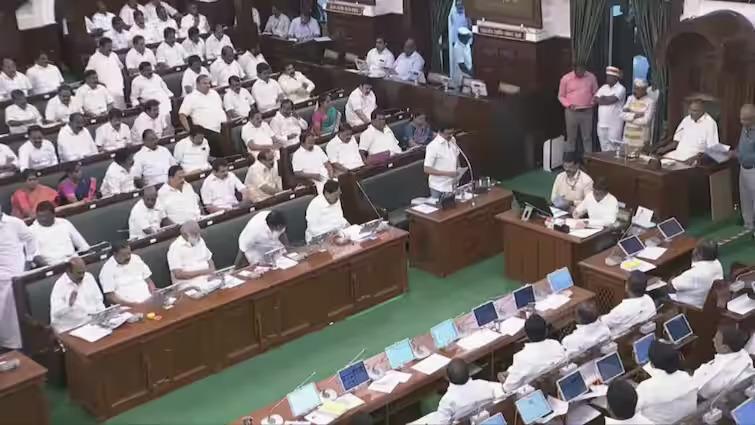
Title: Tamil Nadu Assembly Passes Resolution Against Waqf Bill
The Tamil Nadu Assembly has taken a significant step in opposing the Waqf Amendment Bill, urging the central government to withdraw it. On Thursday, Chief Minister MK Stalin moved the resolution, stating that the bill is another attempt by the government to interfere in the religious administration of Muslims. Stalin emphasized that the bill would harm the rights of Muslims and undermine the autonomy of the Waqf boards.
The Waqf Amendment Bill, which was introduced in the Lok Sabha in December 2021, aims to amend the Waqf Act, 1995. The bill seeks to increase the powers of the central government over the Waqf boards, which are responsible for managing and supervising the religious and charitable institutions of Muslims. The bill also proposes to reduce the number of members in the Waqf boards from 21 to 13, and to give more powers to the central government in the appointment of members.
Stalin, while moving the resolution, slammed the central government for its attempts to interfere in the religious administration of Muslims. He said, “The Waqf (Amendment) Bill is yet another attempt by the government to interfere in the religious administration of Muslims. This is a clear attempt to undermine the autonomy of the Waqf boards and to dilute the rights of Muslims.”
Stalin also pointed out that the bill would harm the rights of Muslims, particularly women, who are already marginalized in society. He said, “The bill will harm the rights of Muslim women, who are already fighting for their rights. It will take away their right to property and to participate in the decision-making process of the Waqf boards.”
The resolution was supported by all the opposition parties in the Assembly, including the AIADMK, DMK, and the Congress. The AIADMK MLA, A. Anbazhagan, said, “The Waqf Amendment Bill is a clear attempt to undermine the autonomy of the Waqf boards and to dilute the rights of Muslims. We strongly oppose this bill and urge the central government to withdraw it.”
The Congress MLA, K. R. Ramesh Kumar, also supported the resolution, saying, “The Waqf Amendment Bill is a threat to the rights of Muslims and to the autonomy of the Waqf boards. We urge the central government to withdraw this bill and to respect the rights of Muslims.”
The resolution was also supported by the Left parties, including the CPI and the CPM. The CPI MLA, R. Mutharasan, said, “The Waqf Amendment Bill is a clear attempt to undermine the rights of Muslims and to dilute the autonomy of the Waqf boards. We strongly oppose this bill and urge the central government to withdraw it.”
The Tamil Nadu Muslim Munnetra Kazhagam (TMMK) also welcomed the resolution, saying, “The TMMK welcomes the resolution passed by the Tamil Nadu Assembly against the Waqf Amendment Bill. We urge the central government to withdraw this bill and to respect the rights of Muslims.”
The resolution is significant, as it marks the first time that a state assembly has taken a formal stand against the Waqf Amendment Bill. The bill has been criticized by many Muslim organizations and individuals, who say that it will harm the rights of Muslims and undermine the autonomy of the Waqf boards.
The bill has also been criticized by many human rights organizations, who say that it is a clear attempt by the central government to interfere in the religious administration of Muslims. The bill has been condemned by many Muslim scholars and intellectuals, who say that it is a threat to the rights of Muslims and to the autonomy of the Waqf boards.
In conclusion, the Tamil Nadu Assembly’s resolution against the Waqf Amendment Bill is a significant step in opposing the bill. The resolution was moved by Chief Minister MK Stalin, who slammed the central government for its attempts to interfere in the religious administration of Muslims. The resolution was supported by all the opposition parties in the Assembly, including the AIADMK, DMK, and the Congress. The bill has been criticized by many Muslim organizations and individuals, who say that it will harm the rights of Muslims and undermine the autonomy of the Waqf boards.





